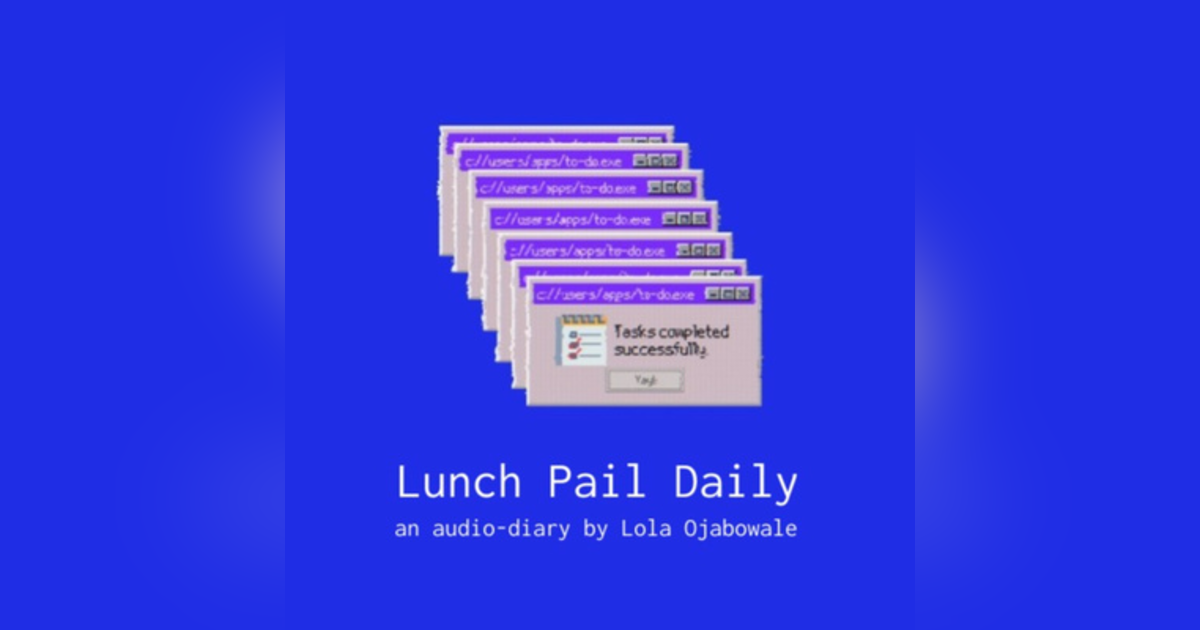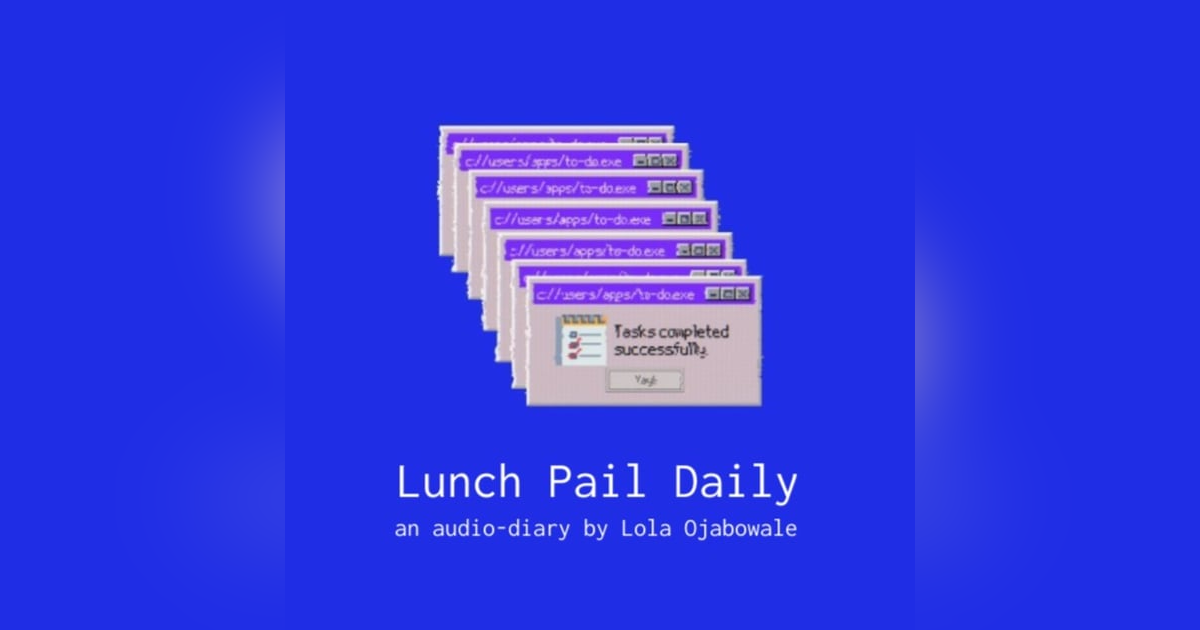#168 — 🔺 Maslow's hierarchy and product markets

Yesterday, I chatted about the water company Liquid Death and stages of product markets and how style/identity are the main differentiators in more markets. I did a little research to see what existing frameworks might apply to this thinking. And came across the Design hierarchy of needs ,coined by William Lidwell, which is on the Maslow hierarchy of needs. In this episode, I jam about how Lidwell's framework describes the earlier stages and how I plan to implement all of that at Lunch Pail.
Links:
0:00
What's up everybody? This is Lola Ojabowale, founder of Lunch Pail Labs. Welcome back to Lunch Pail Daily. It's my personal audio diary, where I share all of the realness on building and growing Lunch Pail Labs, which is a digital product studio based out of Atlanta, Georgia.
0:20
Today's episode we're going to jam about Maslow's hierarchy of needs. And all the things around the stages of products that I mentioned yesterday, a previous episode, I wrote about this water company called Liquid death, that just raised $73 million dollars, whoa, a water company. And what I called like stages of product categories slash markets, and how in more and more markets, style and identity are going to be the main differentiators. I did a little research to see what already existed frameworks wise, that might apply to this thinking, and came across the design hierarchy of needs, which was coined by someone called William Ledwell, which is based on the Maslow Hierarchy of Needs, which is a very popular, I think, like psychological framework of, yeah, what we need as humans. And so and the rest of this episode, really wanted to talk about how lids lead walls and Maslow's frameworks really describe the stages I mentioned previously.
1:20
So stage one, I called it, a solution to the core problem finally emerges. This is really the functionality stage. And it's the most basic need of a market. If a majority of a market has yet to create the basic functionality that solves the problem that the market has. That's where the focus is.
1:41
Then you have the stage two, which I called like, the better, faster, cheaper stage Lindwall calls it like the liability and usability stages. And so like, once you know that basic functionality is solved in a market, then solutions will try to be more usable and more reliable. I think that's where like your UX comes in, and sort of like Optimation . So overall, you're sort of like, first from basic functionality, kind of like solutions.
2:12
Then you have this like, last stage, which I called, like the doing it with style stage, and literally calls it the creativity stage. Maslow calls it the self actualization stage, basically, like once solutions in the market are sufficiently functional, reliable and usable, then consumers will choose the product that expresses their creativity, identity and style in the best way.
2:39
So kind of like why does all this matter even why am I thinking about this? Well, one, if this framework actually plays out, it might help, at least me think about, like what the future of our market might hold. Especially I mentioned this so many times, but tyring to scale, Lunch Pail revenues, but not through consulting. I'm capping my like, just like Consulting at my current engagements, but like through like, a portfolio of digital products of mini sasses. And I think this maybe potentially putting ideas through this lens will help me think about the best ways to show up.
3:22
Another thing that I think is cool with this, too, is, though the pyramids are very small. As you go up, I actually think there are more opportunities as you like, kind of go up the hierarchy. So I think a few predominant ways will win out to solve functionality in a market. Like, there'll be like a few main ways to solve the problem. And then there are will be more ways across more dimensions to make it more reliable and usable. And I think as markets get to the like style and the creativity stage, there's even even massively more ways to have a solution speak to someone style and identity. I also think this kind of raises the bar of what like an or like, helps frame what an MVP should be, and explain simply common platitudes. So like, like multiple times a year thing somebody on Twitter will share, like, hey, like, your version can be your first version can be crappy. And they'll like share all the websites from like Google or Shopify or whatever company in the 90s. I think this explains a little bit of my what might be required to compete in a market depending on the stage. So like, yes, Google, or like Shopify, in the 1990s had a crappy website, but that market was still trying to figure out the functionality stage.
4:57
And so yeah, I think that was acceptable. Now that, you know, I think that's probably more on the better, faster, cheaper stage, maybe even the creativity and style identity stage, like you can't show up with just like, oh, I also solved how to shop online, because that's already like, unless if it's drastically improved, in which case, it might be the use case for a different market altogether, that is actually at the functionality stage. I also think it describes some of the like, boom, at least I've seen and people talking about, like community based products.
5:35
And there's the sort of like nichefying of everything. And I think it's because a lot of us are building and solving solutions in markets where things are sufficiently better, faster, cheaper. So that's not really people have ample choice of those options. And the problem is sufficiently functional. So that's why now the style and creativity, you know, you're not just building a To Do app, which is more convenient than a to do list maybe on your notebook. But you're building a To Do app for hipsters who like to paint or while kind of whatever dimension, so interested to keep on thinking about this and maybe like run through some ideas that I can, like have or like experiments rather, to see like where I put them. And also like, look for counter examples of things because I'm sure there's lots of things that totally break the rules.






